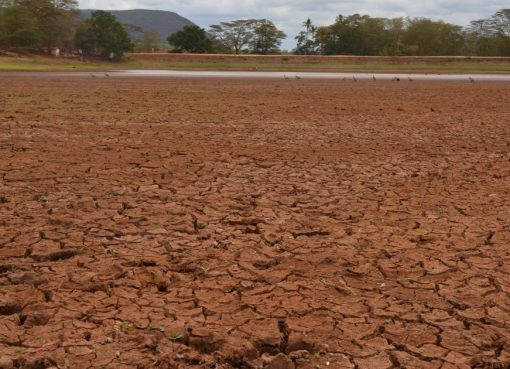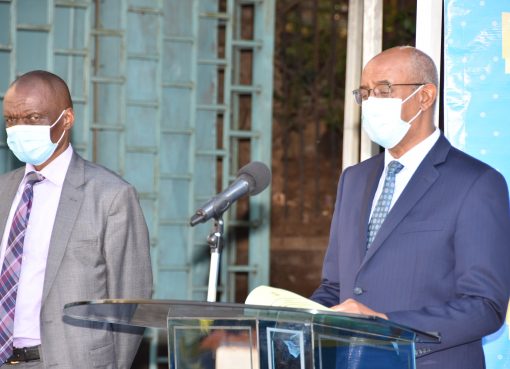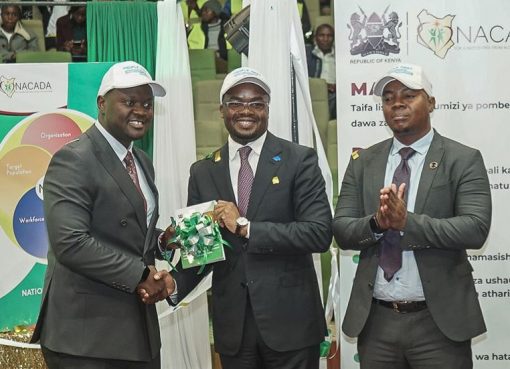The Geothermal Development Cooperation (GDC) is training 12 geologists from Uganda and Tanzania on collection of geosciences data and information in a move aimed at unlocking the continent’s unexploited green energy and natural resources valued at billions of shillings.
Acting head of Geothermal Centre of Excellence (GCE), Dr. Robert Ogutu said the trainees are drawn from University of Dar es Salaam Geology Department and Uganda’s Ministry of Energy and Mining.
Speaking in Nakuru when he officially inaugurated the Training Programme, Dr. Ogutu stated that proper geological expertise is essential for scientific investigation, managing geological hazards, land use evaluation and classification, civil engineering projects, formulating government resource policy and efficient exploitation of natural resources.
“I urge the trainees to make use of available resources to improve their technical skills and competencies. The programme will incorporate both classroom and practical sessions,” he said.
Other Key topics to be covered include geothermal systems and global occurrence, development, tools for geothermal resource mapping (geoscientific information), overview of geophysical methods used in geothermal exploration and geothermal mapping using ground temperature measurements & Temperature Gradient Holes (TGH).
He observed that within the framework of Energy, Climate Change and Sustainable Development Goal, the governments of most African states were keen and committed to explore and further develop geothermal energy as one of the alternative renewable energy resources in their respective countries.
“Though, among the various challenges to achieve this strategic energy development objective in a sustainable manner is the inadequate skilled manpower in the areas of geothermal science and technology, with credible geological expertise and geoscientific data it is much easier to establish the amount of natural resources under Kenya’s and Africa’s feet. This effectively reduces exploration risks and increase discovery rates of natural resources,” stated Dr. Ogutu
Dr. Emmanuel Owden Kazimoto from University of Dar es Salaam said the training will also focuses on strengthening the mechanism for gathering, disseminating and archiving critical geological data required by investors and policy makers.
“We have high expectations as we learn from the best within the region in geothermal matters. We will also be exploring ways in which Tanzania Geothermal Development Company (TGDC) can benchmark its operations with GDC,” Kazimoto said.
The training will equip us with knowledge as a way of capacity building for geothermal practitioners in our country,” Kazimoto said
The geologists will also be taken through data integration and interpretation (schematic conceptual model), drilling technology in geothermal resource exploration and development, well testing and reservoir technology, utilization of geothermal resources and planning and management of geothermal projects.
According to geological experts most of the available geological knowledge in Africa is outdated. This affects the credibility of the resource information, and has impacted the bankability of exploration projects.
Dr. Ogutu noted that improved information insights further informed investors, as well as regulators and the general public who are increasingly demanding sustainable energy solutions.
“Technology and innovation that reduces the associated costs of geothermal exploration and the development of new fields gives companies the edge and pushes the industry forward,” explained the Acting head of Geothermal Centre of Excellence
Kenya has heavily invested in geothermal energy as it targets 100 per cent transition to green energy by 2020 to address the climate change challenge.
Speaking at the first Global Conference on Sustainable Blue Economy from Kenya, Canada and Japan co-hosted in Nairobi, President Uhuru Kenyatta said renewable energy makes up 70 per cent of Kenya’s installed electric power capacity, with investment scaled up.
According to the Renewables Global Status 2018, Kenya tops in Africa with 700 megawatts (MW) of geothermal power, retaining its place compared to last year.
The US has the largest geothermal generating capacity with 2,500 megawatts followed by the Philippines (1,900 MW), Indonesia (1,800 MW), Turkey (1,100 MW), New Zealand (1000 MW), Mexico (900 MW), Italy (800 MW) and Iceland (750 MW).
Kenya beats technological heavyweight Japan which has been ranked tenth with an output of 500 MW.
The rest of the world shares 950 MW. Ethiopia is the only other African country with developed geothermal energy (7 MW).
Geothermal is widely considered a preferable, low-cost renewable energy source due to low emissions when compared to thermal sources.
It is also cheaper than thermal power when used as an alternative to mitigate depressed hydropower generation due to drought. Kenya has a target of 5 gigawatts (GW) geothermal capacity by the year 2030.
The Green energy power plants under development in Kenya, include the 300 MW Lake Turkana Wind Power Plant, which is the single largest wind power plant in Africa, the 70 MW Olkaria 1 and the 140 MW Ol Karia V.
Kenyans are inching closer to getting a relief of lower power bills when three independent power producers (IPPS) cleared by the Geothermal Development Company (GDC) start operations at the Menengai Crater Floor in Nakuru.
The three producers are expected to set up power plants under a build–own–operate model, giving hope for cheap electrical power in the country. Each is expected to set up a 35MW modular geothermal power plant in the Menengai Crater field to generate a cumulative of 105 MW.
The GDC Managing Director, Johnson Ole Nchoe said once complete, the Menengai GDC plant will produce enough electricity to serve almost half a million homesteads and 300,000 businesses
“We have undertaken 95 percent of works on a 25km long pipeline which is expected to carry 150MW of steam to be used by the power plants in producing electricity,” Engineer Ole Nchoe said
The Quantum Power East Africa was the first of the three IPPs that were chosen to take part in the project to receive a letter of support from the Government for the construction of the 35MW power plant. The IPP has started developing its plant at a cost of Sh8.2 billion. The African Development Bank will provide Sh4.03 billion ($40m) to Quantum
Two other IPPs – OrPower22 and Sosian Menengai are strategizing to attain financial closure with financiers.
By Jane Ngugi/Mark Wayne




